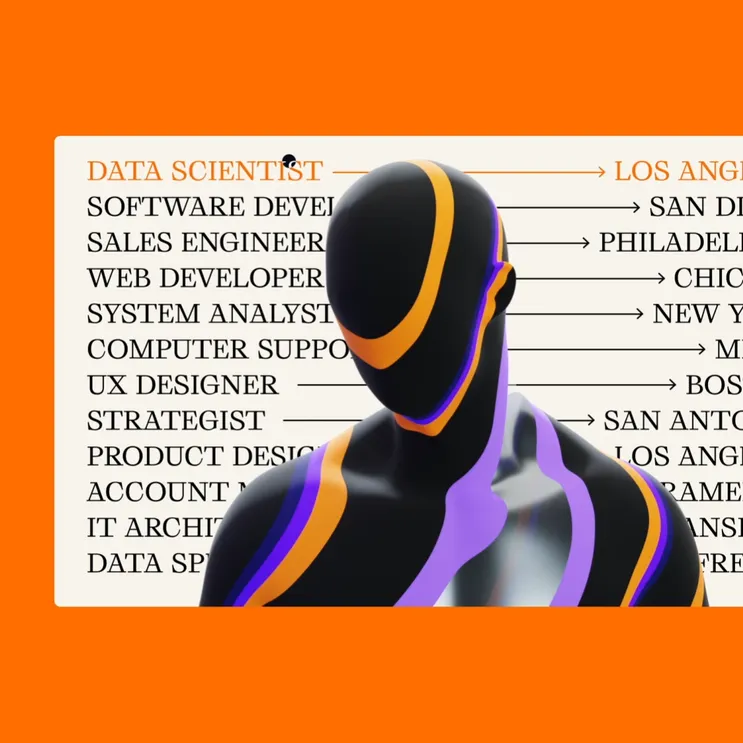Design
5 min read
Behind the Names: The Unique Origins
The names of successful companies often become household words.
However, these names, though familiar, often have unique and curious origins. As a sneak peek, consider WD-40, which means “Water Displacement – successful on the 40th try.”
Let’s dive into the naming stories behind 20 world-renowned companies:
Google: The term “googol” signifies a number 1 followed by 100 zeros. Larry Page and Sergey Brin chose this name to reflect their vision: to organise the near-infinite amount of information available on the web.
Adidas: Founded by Adolf “Adi” Dassler, the brand’s name is a blend of his nickname “Adi” and the first three letters of his surname, “Das.” It underscores a personal touch to a worldwide brand.
Pepsi: Caleb Bradham, a pharmacist, created the drink hoping it would aid in digestion and boost energy due to its key ingredient: the enzyme pepsin. The name underscores its health-centric origins.
Sony: “Sonus” is Latin for sound, referencing the company’s roots in audio products. “Sonny-boy” is a term of endearment, implying youth and innovation, characteristics the founders aspired for their brand.
Amazon: Jeff Bezos chose the name inspired by the vast and exotic Amazon River. It symbolises depth and diversity, mirroring his vision for the online marketplace.
Starbucks: The founders wanted a name starting with “St” as they believed such names were powerful. Starbuck, a character from Herman Melville’s “Moby Dick,” provided that maritime allure which resonated with Seattle’s strong seaport history.
Nike: The brand, focused on athletic achievement, named itself after the Greek goddess of victory, encapsulating triumph and determination.
Volkswagen: Adolf Hitler’s vision of a car for every German family led to the “Volkswagen” or “people’s car.” It embodies accessibility and reliability.
Coca-Cola: Derived from two of its original ingredients: coca leaves and kola nuts. John S. Pemberton’s bookkeeper, Frank M. Robinson, suggested the name, believing the two Cs would look good in advertising. It reflects its two original vital ingredients.
IKEA: More than just a name, IKEA represents its founder’s roots. (I)ngvar (K)amprad’s humble beginnings at his farm, (E)lmtaryd, in the village of (A)gunnaryd, instilled values of simplicity and efficiency in the company.
Bluetooth: Named to honour King Harald “Bluetooth” Gormsson, the technology’s purpose mirrors the king’s unification efforts, aiming to bring varied devices together.
LEGO: Ole Kirk Christiansen, the founder, unknowingly chose the Danish phrase “leg godt,” meaning “play well,” which also coincidentally means “I put together” in Latin.
Haagen-Dazs: Founders Reuben and Rose Mattus invented the name to evoke European artistry and craft. The old-world charm differentiated it in a crowded American ice cream market.
Spotify: A brainstorming session between founders Daniel Ek and Martin Lorentzon led to a mix-up between “spot” and “identify,” serendipitously forming “Spotify.”
Mozilla: An homage to Mosaic, an influential early browser, the name also conjures the strength and vastness of “Godzilla,” hinting at their ambition to dominate the browser market.
Canon: The company’s original name, “Kwanon,” was based on a Buddhist deity. As they aimed for global appeal, it was westernized to “Canon,” suggesting precision and reliability.
Reebok: The company wanted a name symbolising movement and energy. The “rhebok,” an African antelope known for its speed and agility, fit the bill perfectly.
Hulu: The dual meaning in Chinese, “interactive recording” and “gourd,” which traditionally held precious things, elegantly mirrors the company’s mission to be a treasure trove of content.
7-Eleven: The store, innovative in its extended hours from 7 a.m. to 11 p.m., adopted this operational detail as its brand, emphasizing convenience.
Netflix: The name “Netflix” combines “net” for internet and “flix,” slang for movies. Founded in 1997, it started as an online DVD rental service and evolved into the streaming giant we know today, with the name capturing its digital and cinematic roots.
Wrap Up:
In business, a name represents a brand’s past, dreams, and its founders’ vision.
Looking into the backgrounds of these 20 famous companies, we see the effort, emotion, and luck that define major brands.
Every successful company has a story, highlighting the importance of names and branding.
There’s More:
Take a look at our re-branding of SEDA (SEcure DAta), Districts and Joyn!
Don’t forget to check out A Guide to Naming Your Brand: What to Consider!























